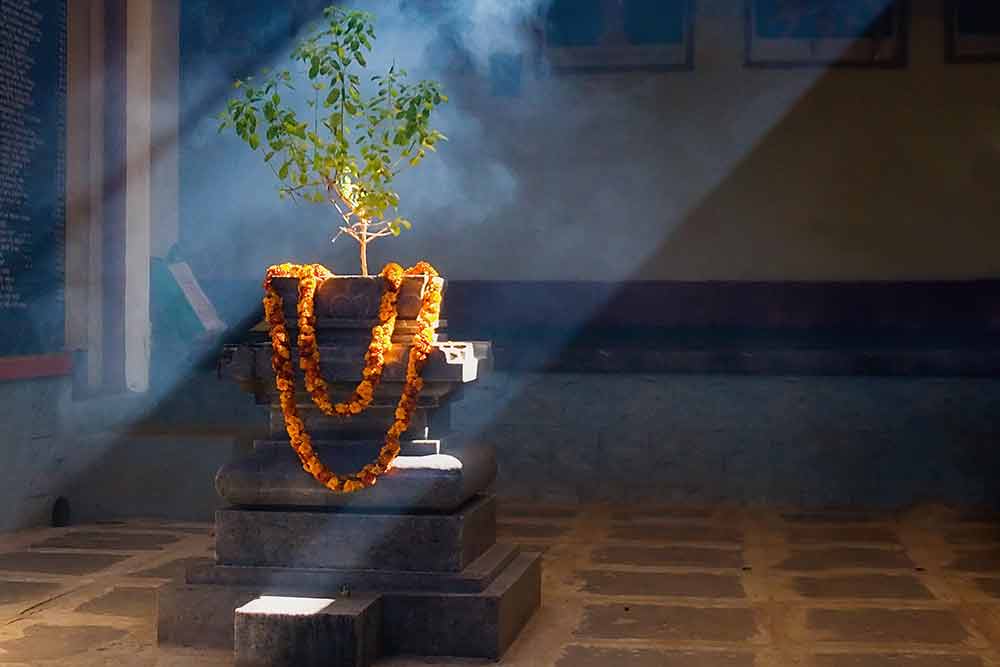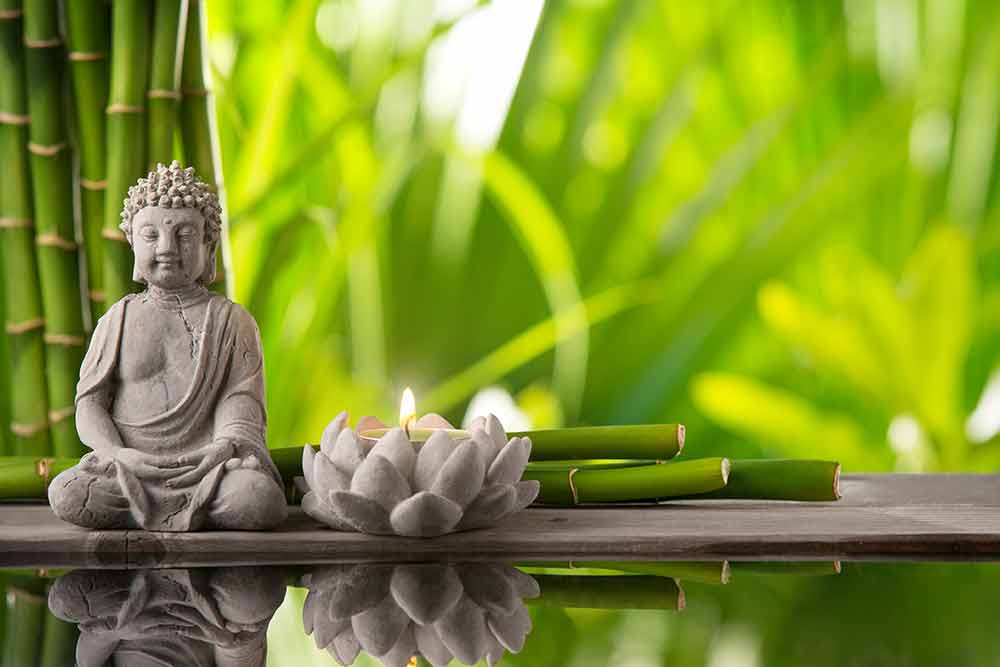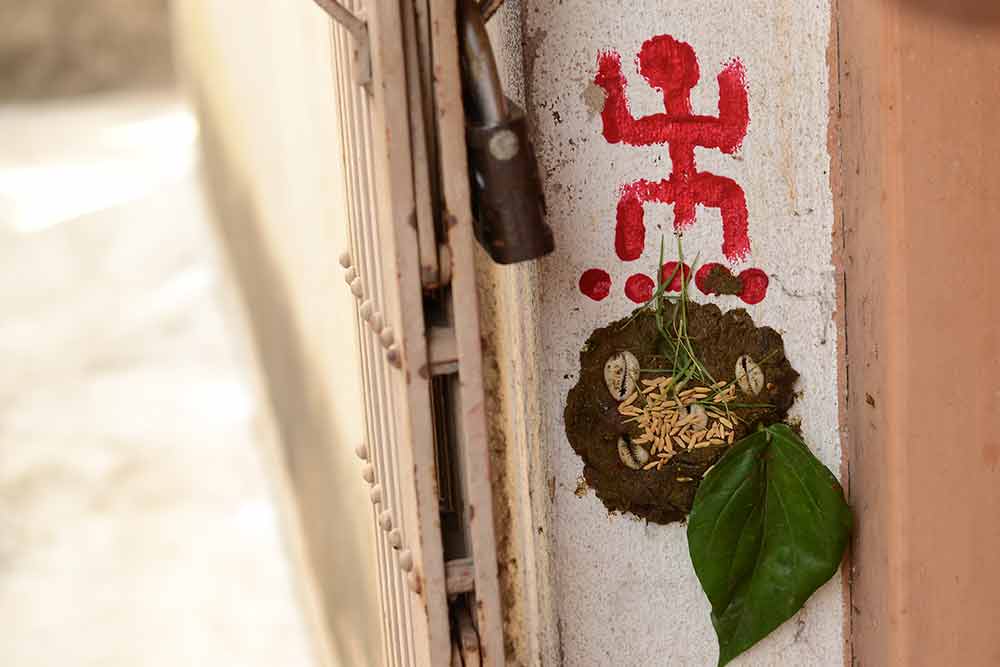When it comes to your home, everyone knows it’s that one place that needs special attention. It’s that safe place we all go back to, whether it’s at the end of a school day or work day, and feel like we belong. Turning a house, whether it’s rented or one that you’ve bought, into ‘Home Sweet Home’ is quite a lot of work, and absolutely worth it because of the security and warmth it provides.
And yet, in the process of making a home feel truly homely and safe, many people choose to take into account two ancient systems of guidance: Vastu and Feng Shui. The former originated in India, while the latter originated in China. With many things in common—and a few key points of difference—Vastu and Feng Shui are both believed to make homes auspicious if followed properly.
However, for those new to these concepts, telling the difference between the two systems can be quite difficult to identify. Moreover, knowing which one you need for your home is another issue that can come up. Do you have these very questions in mind? Look no further for answers, and just read on.

Understanding Vastu Shastra
According to Dr Mark Rosenberg, the director of the European Academy of Ayurveda, Germany, and the author of Vastu Shastra—The Vedic Concept of Holistic Architecture for Healthy Living, Vastu has a lot to do with the construction of buildings and homes. Vastu, as per this expert, is based on the idea that every constructed place, whether it’s a temple or a house, should have spatial conditions in line with environmental and natural conditions surrounding it. Structures which are built keeping in mind how the proportions of nature connect with human beings are believed to promote health and prosperity for the inhabitants.
Vastu takes into account a few key construction factors, but the primary one is the influence of magnetism of the spatial objects and building materials used. Magnetic waves that permanently flow from North to South are believed to trigger effective healing among human beings, for example. If the magnetism factor is taken into account while constructing a place, then a positive energy field is generated, which promotes both physical health and mental vitality. The eight directions—north, north east, east, south east, south, south west, west and north west—play a huge role here, and may also dictate which area of a plot of land is appropriate for building kitchens, home temples, bedrooms, etc.
Partially based on Ayurvedic knowledge and astrological wisdom, Vastu is a congruence of important ancient Indian principles. The following are believed to be some of the benefits of following Vastu:
• Because it is based on harmonising all natural elements, Vastu is believed to promote good health among inhabitants.
• The correct application of Vastu principles may also promote monetary growth and success in monetary endeavours.
• Since the aim of Vastu is to neutralise negative elements, it promotes mental wellbeing and strength.
Vastu, therefore, promotes financial, physical and mental health—all the things that inhabitants of any home need to lead a happy and prosperous life.

Understanding Feng Shui
Rooted in Taoism, Feng Shui is believed to be as old an astrological science as Vastu. According to the Feng Shui Institute, UK, Feng Shui literally translates to “wind and water”, and is one of the Five Arts of Chinese Metaphysics. Like Vastu, it is the study of how the positive and negative energies of our environment affects us. The principles of Feng Shui also indicate how to best remove negative elements and accentuate the positive ones—referred to as Qi—to benefit human beings. When all five natural elements are in perfect harmony in what Feng Shui calls a Sheng Cycle, the energy of Qi passes smoothly from one evolutionary stage to the other, bringing forth harmony within spaces and people.
But, if an element is missing from this environment, then the Sheng Cycle either ends up producing too little Qi or too much of it, leading to one element controlling another and creating disharmony and negative effects. Most Feng Shui consultants use the Sheng Cycle within the spatial context to balance the Qi, making the space auspicious for people. But the Sheng Cycle isn’t the only concept that matters in Feng Shui. The concept of Yin (darkness) and Yang (light) also plays a role here, as do the Eight Trigrams—based on Tai Chi, these are symbols that are believed to contain great wisdom and knowledge because they teach humans about natural phenomena that affect lives and how to live a naturally balanced life. It is important to note here that the eight directions or Bagua and the natural flow of seasonal winds also play a role in Feng Shui.
Based on ancient Chinese philosophy, the practice of Feng Shui is believed to impart some immense benefits. Here are a few you should know about:
• It is believed Feng Shui promotes good health and fertility, and can also prevent accidents.
• Adding a few elements that promote the balance of Qi may also spell improvements in your career and wealth.
• By improving energy and motivation, and improving relationships through the addition of a few elements, Feng Shui may also improve your confidence and mental wellbeing.

Vastu And Feng Shui: Common Elements
As two ancient systems from neighbouring countries, rooted in ancient and natural philosophies, Vastu and Feng Shui have a lot in common. Here are few common elements both focus on:
• Both Vastu and Feng Shui focus on the five elements of life, and take cues from the natural world on how humans should live their lives.
• While Feng Shui focuses on Qi, Vastu does the same on Prana or positive life force. Both have the ability to bring inanimate objects to life, and dictate the maintenance of harmony between the elements.
• Both Vastu and Feng Shui depend on the eight directions and mandalas based on them to determine how auspicious or inauspicious the floor plans of a building or house may be.
• The positioning of certain rooms—specifically the bedrooms and bathrooms—as well as the main entry matter a lot in both Feng Shui and Vastu.

Differences Between Feng Shui And Vastu
Despite having concepts and ideas in common, Vastu and Feng Shui are actually very different systems. Both promote good financial, physical and mental health, but the way they do so is oceans apart. The following differences between the two systems highlight this:
• The five elements in Taoism are earth, metal, water, wood and fire, while in the Vedic system they are water, fire, earth, air and space. This essentially means that the presence or absence of very different elements affects each system and people who use them.
• Vastu is more focused on construction, and was first used to construct temples. Even now, this system is used by builders and those constructing their own homes on a plot they own. Feng Shui, on the other hand, can be used to arrange any space—whether it’s your home or your office workspace—to make the flow of energy more auspicious.
• While both systems use the eight directions as their basis, Feng Shui believes South to be most auspicious, while Vastu believes that North is the most auspicious direction. These are two opposite directions, and catering to the demands of both the systems at once can therefore lead to more conflicts rather than harmony.
• The objects that promote auspiciousness in both systems are also very different. Vastu focuses on the proper placement of Ganesha idols and symbols as well as the Tulsi plant. Feng Shui emphasises on the proper placement of Laughing Buddha, bamboo and wind chimes.
Which One Should I Choose?
So, while both Vastu and Feng Shui are natural, astrological systems that can make your home the sweetest place to live and thrive in, their differences are many and critical. If you’re wondering which one you should opt for, here are a few things you must consider.
• What kind of a home do you have? If it’s one that’s being constructed from scratch, then following Vastu ideals might be better, especially if your home is in India where most builders nowadays understand these concepts better than those of Feng Shui.
• Even if you live in a rented place, a simple query with the builder can help you understand how Vastu-appropriate your home is. When you’re moving next, you can look for a house that follows these principles since the time of construction.
• Which experts do you have access to? If you truly want to incorporate wither Vastu or Feng Shui into your living space, it’s best to talk to a certified expert of either so that you can maximise on the positive energies as per your needs.
• Feng Shui, because of its easier adaptability in any space, can transcend your home. In fact, whether your home is newly constructed or old, whether you are an owner or a tenant, adopting the principles and placing auspicious objects according to Feng Shui is much easier.